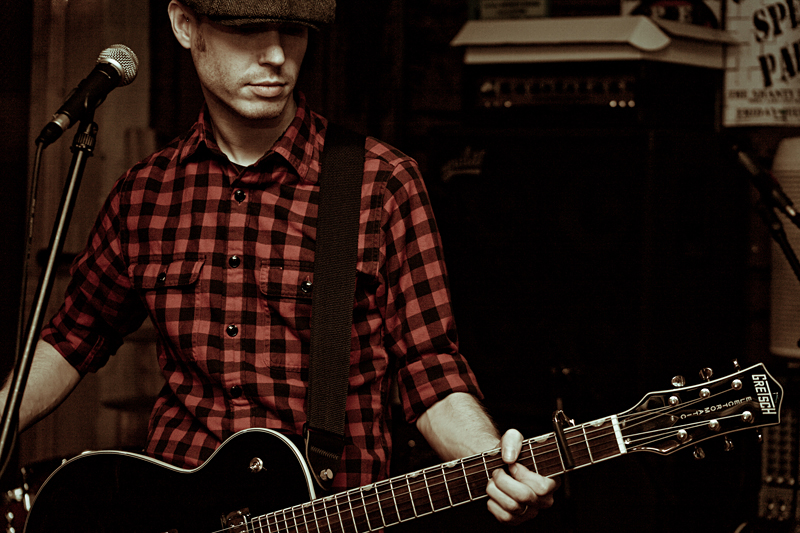Image via?There’s a lot to love about the Mayor’s proposed overhaul of the city’s nightlife regulations. Staggered closing times for bars, “liquor stickers” that allow would-be drunk drivers to leave their cars parked overnight without fear of getting towed, and community outreach programs are all long overdue changes. But is it really necessary to crack down on noise ordinance violations and lower the decibel level threshold for bars and music venues?UPDATE 1:42 p.m.: McGinn spokesman Mark Matassa points out that the ordinance passed in 2007 did not set the sound level threshold at 80 decibels. In fact, it didn’t establish any threshold at all. The 80 decibel confusion, he says, comes from a number that was originally proposed by McGinn during the community meetings. Residents, however, gave “so much negative feedback and were concerned it was way too loud” so the 65 decibel standard was compromise that was reached after talking to residents and club owners.Matassa also notes that in lieu of paying fines, a club or venue that receives multiple noise complaints could use the money they owe the city to install soundproofing.Original post, with corrections, follows.The changes, one of only two measures (including the overnight parking plan) that will actually take effect in the near future, modify an ordinance passed by the City Council in 2007. The ordinance makes it illegal for “any nightclub to produce amplified noise between the hours of 10 p.m. and 7 a.m. that is plainly audible to a person of normal hearing when measured inside a dwelling unit.”Back then, “plainly audible” was deemed to be 80 decibels. McGinn now wants to lower that level to 65 decibels. A look at this handy chart shows that 65 decibels is roughly the equivalent of conversational speech, a running air conditioner or, at most, a noisy restaurant or business office.According to the Mayor’s press release, just six percent of the 2,400 city residents who offered feedback on the nightlife initiative reported having “a significant problem with nightlife-related noise at least once per month.” More than 65 percent, meanwhile, said they never had a noise problem. The Mayor’s press team writes that the new noise level rules were spurred by “strong concerns” that were voiced at community meetings. The lowered decibel level was determined “after conducting many field tests, working with residents and club owners, talking to police officers, researching practices in other metropolitan cities and considering how amplified sound needs to be measured.”Violations of the noise ordinance will be complaint-based. Bars that are too noisy to their neighbors’ ears receive a warning first, then a $1,000 fine and a $2,000 per day penalty if they are repeat offenders. A potential loophole is that a bar can only be slapped with a fine if a 65+ decibel reading is taken inside someone’s nearby house or apartment; if the city has to take the decibel measurement on the sidewalk because the complainant wouldn’t let the inspectors inside their abode, a warning is the most they can do.McGinn noted at the press conference last night that the intended targets of the new noise ordinance are establishments that bump low-level, deep bass. While this could, conceivably, include house music, odds are he was talking about hip-hop. If that is indeed the case, the new measures have the potential to further inflame tensions between the city and minority-owned and attended clubs. The press release notes that, “members of the African-American community commented at several meetings that clubs with live hip-hop acts were shut down at a disproportionate rate.”But what’s most puzzling about the new noise rules is that McGinn is already aware of a more sensible alternative to lowering the decibel baseline. The same press release notes that, “there was much support for soundproofing requirements,” for clubs, and also says people spoke out in favor of “good neighbor agreements,” in which residents acknowledge that when they live next to a nightclub, it’s going to be kind of loud. Alas, it sounds like that feedback got drowned out by all the cries to just turn down the damn volume.
More Stories From This Author
Adam Smith and Kim Schrier will retain Congress seats | Election 2024
Smith represents the 9th Congressional District and Schrier represents the 8th Congressional District.
November 5, 2024 9:40 pm
Boeing Machinists approve contract, ending 52-day strike
After voting no twice, 59% of union members approved the latest contract.
By
Michael Henneke • November 5, 2024 8:40 am
Charges filed against teens in King County crime spree
Suspects linked to 78 robberies, shootings and carjackings in Sept. and Oct.
By
Benjamin Leung • October 21, 2024 6:00 pm






